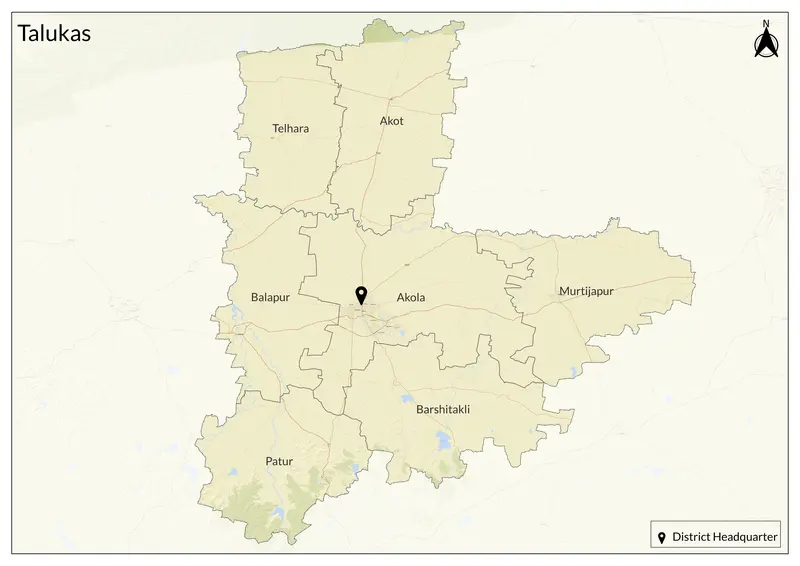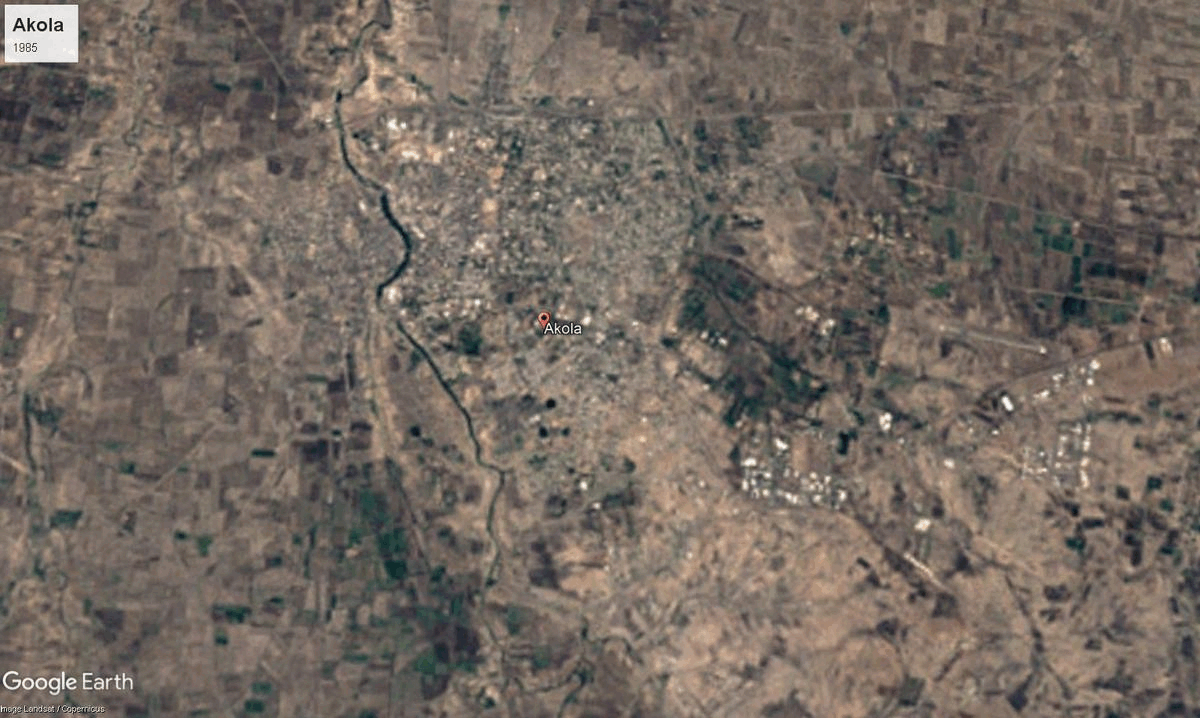Akola

5,429 sq. km
~19.72 lakh (2019)
942 (2011)
~ ₹24,047 crore (2019)
~ ₹1.22 lakh (2019)
Akola is located along the Morna River within the Tapti River valley, about 280 km west of Nagpur and 580 km from Mumbai. In 1998, the district underwent a significant change when it was bifurcated to create the new Washim district. This division shaped Akola into its present form, comprising the talukas of Akola, Balapur, Patur, Barshitakli, Murtizapur, Akot, and Telhara. The name "Akola" likely comes from the Marathi word "Akol," meaning "the end" or "the boundary," reflecting the city's historical role as a frontier or administrative center in the region. Local tradition also attributes the city's name to Maharaja Akolsingh, an influential figure who is said to have played a key role in the area's history.
Historically, Akola has been influenced by various cultures and rulers. Akola is part of the central part of Amravati Division, which was part of the Berar province during the British Raj. It is also the site of the famous Battle of Argaon in 1803, during the Second Anglo-Maratha War, which led to Nizam of Hyderabad to take control of all Maratha claims in Berar from Bhonsales' rule. In the Third Anglo-Maratha War, it came under the British.
Akola is also is known for the Shri Raj Rajeshwar Mandir, which continues the ancient tradition of lighting 11 akhand deep and celebrates the birth anniversary of Sahastrarjun Kartviry Arjun with a grand three-day festival generally during Karthik month (Oct-Nov typically). During the British era, the All Saints Church, established in 1873, became an important site and is recognized for its colonial architecture to this day. Akola is also home to the Katepurna Sanctuary, known for its biodiversity, including the rare four-horned antelope and barking deer.
Geographically, Akola lies within the Tapti River valley, along the banks of the Morna River. The district experiences a tropical wet and dry climate, characterized by hot summers, significant monsoon rainfall, and mild winters. The fertile plains and gentle hills of this region contribute to its agricultural productivity, particularly in cotton farming, which drives the local economy.
Akola's economy is largely supported by its thriving cotton industry, earning it the title of "The Cotton City." The fertile lands of the Tapti River valley support extensive cotton farming, which fuels the oil and textile industries.
Explore Akola
